Adrian Tejano musicians honored with Michigan historic marker
Adrian's role in the introduction and growth of Mexican American cultural contributions in Michigan is now recognized on a new state historical marker and granite monument in Detroit’s Mexicantown.
The marker and monument at Detroit’s 21st and Bagley streets recognize 16 Mexican American musicians, including at least four who have ties to the Adrian area, for their roles in introducing Tejano music to Michigan. The marker is the state’s first to directly recognize Hispanic contributions to Michigan history.
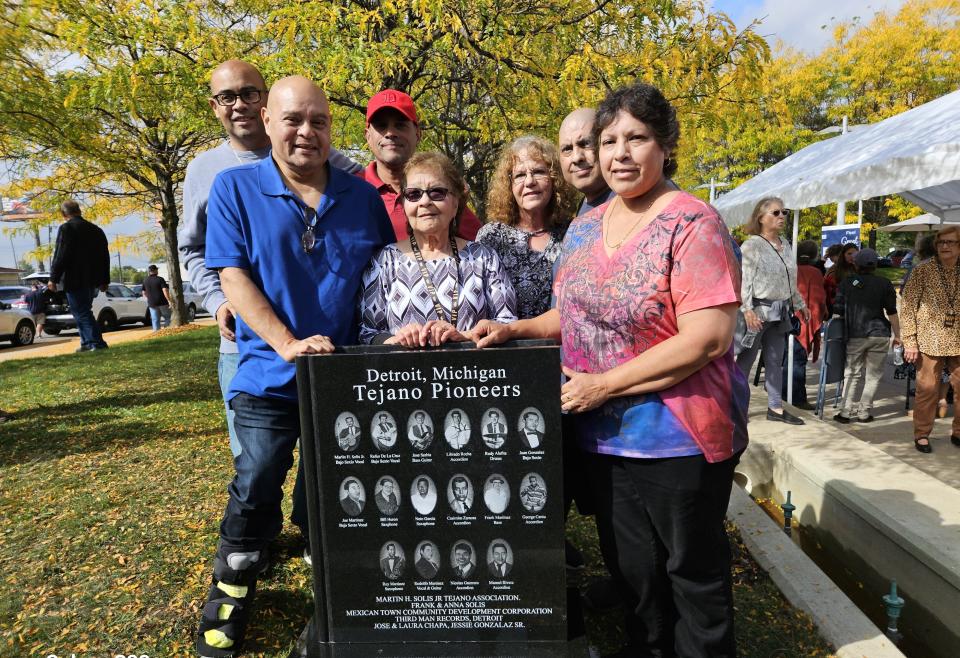
Rufus De La Cruz, recognized for his vocal work and for playing the bajo sexto; bass guitarist Jose Sarabia; accordion player Librado “Lee” Rocha; and percussionist Rudy Alafita each have their names and faces etched into Michigan’s history.
Sarabia, nicknamed “Joe,” died Dec. 23, 2021, at the age of 79. De La Cruz died at the age of 58 in 1996. Family members of both musicians attended an unveiling ceremony Sept. 29 in Detroit, where they also received lifetime achievement awards from the Michigan Music Hall of Fame.
The awards, signed by the Hall of Fame’s president, Kevin Hill, recognize their contributions to Michigan’s “rich music culture.”
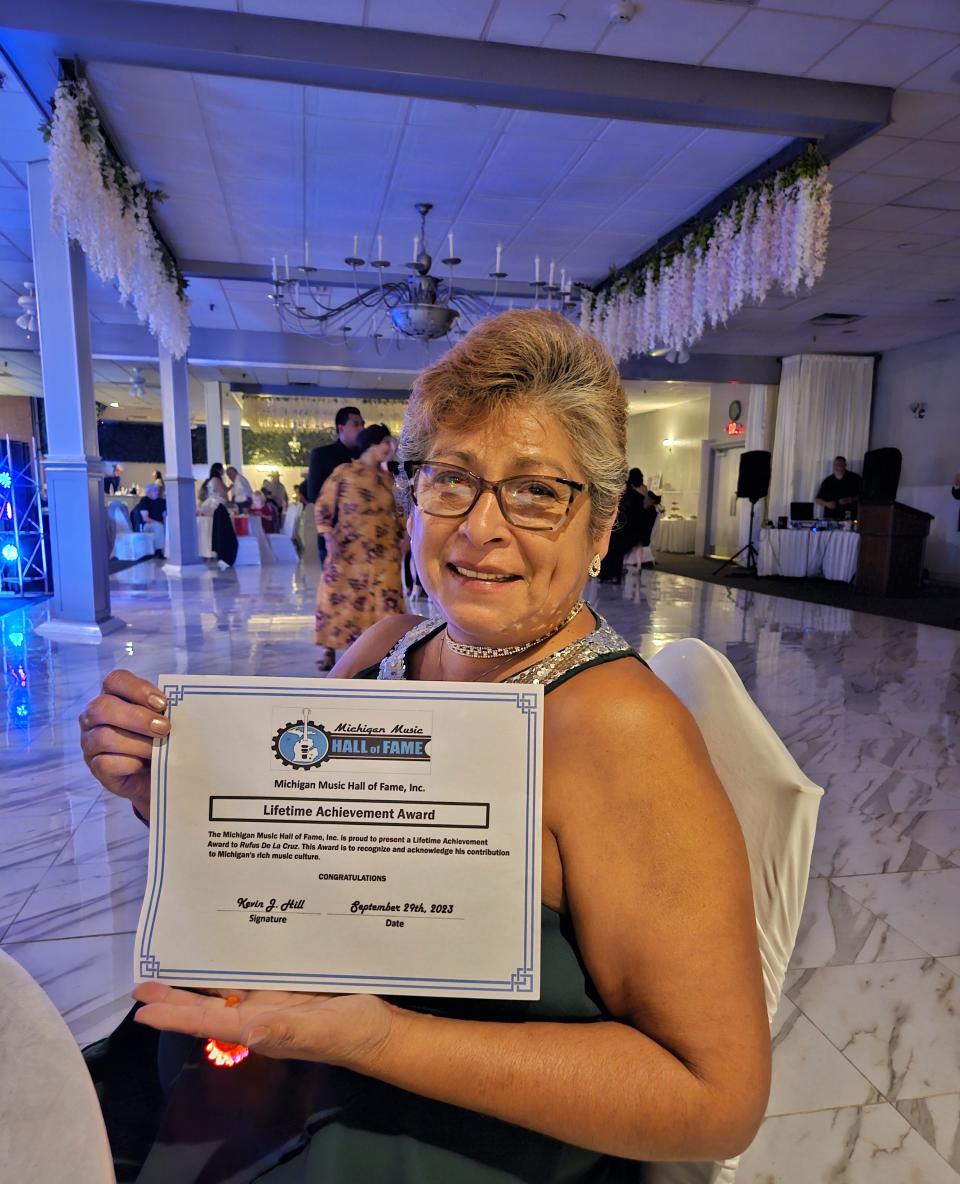
Adrian’s Bobbi De La Cruz, Rufus’ daughter, attended the ceremony and accepted the lifetime achievement award on behalf of her father, calling it an honor to receive the award.
“Music was his life. He played every weekend if he could. That’s what he loved to do,” she said, recounting that her father began playing musical instruments when he was as young as 9 years old.
“It was amazing to see the people who responded and made this state marker a reality,” she said. “It’s a beautiful tribute.”
More: Installation of Michigan historical marker seeks to recognize influential Tejano musicians
In 2019, The Daily Telegram interviewed both Alafita and Sarabia about their memories of playing Tejano music and traveling with bands throughout the state and across the country. Their music was performed live at bars, weddings and parties.
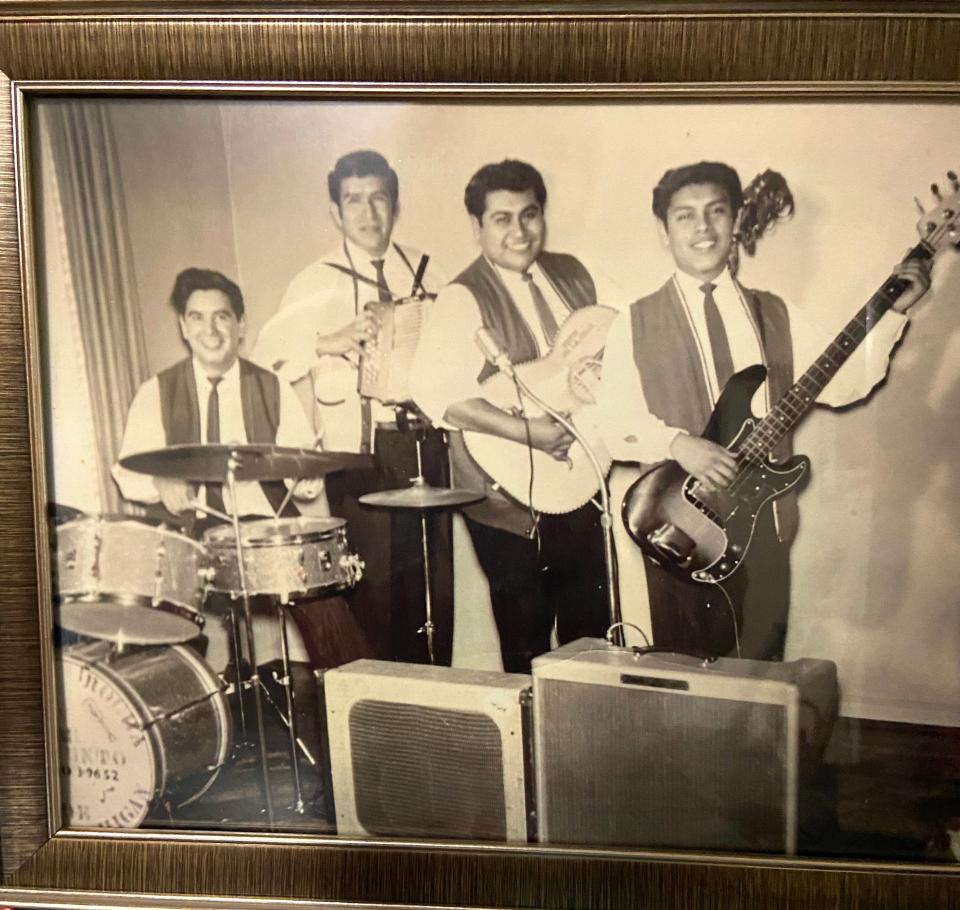
Alafita said it was common for bands to play nearly three or four times a week. Sometimes they would play live shows at concert halls in Adrian, Ottawa Lake and Toledo.
“Back in the day, nobody knew the music like we did,” Bobbi De La Cruz said. “We had dances every weekend, and every holiday we had music.”
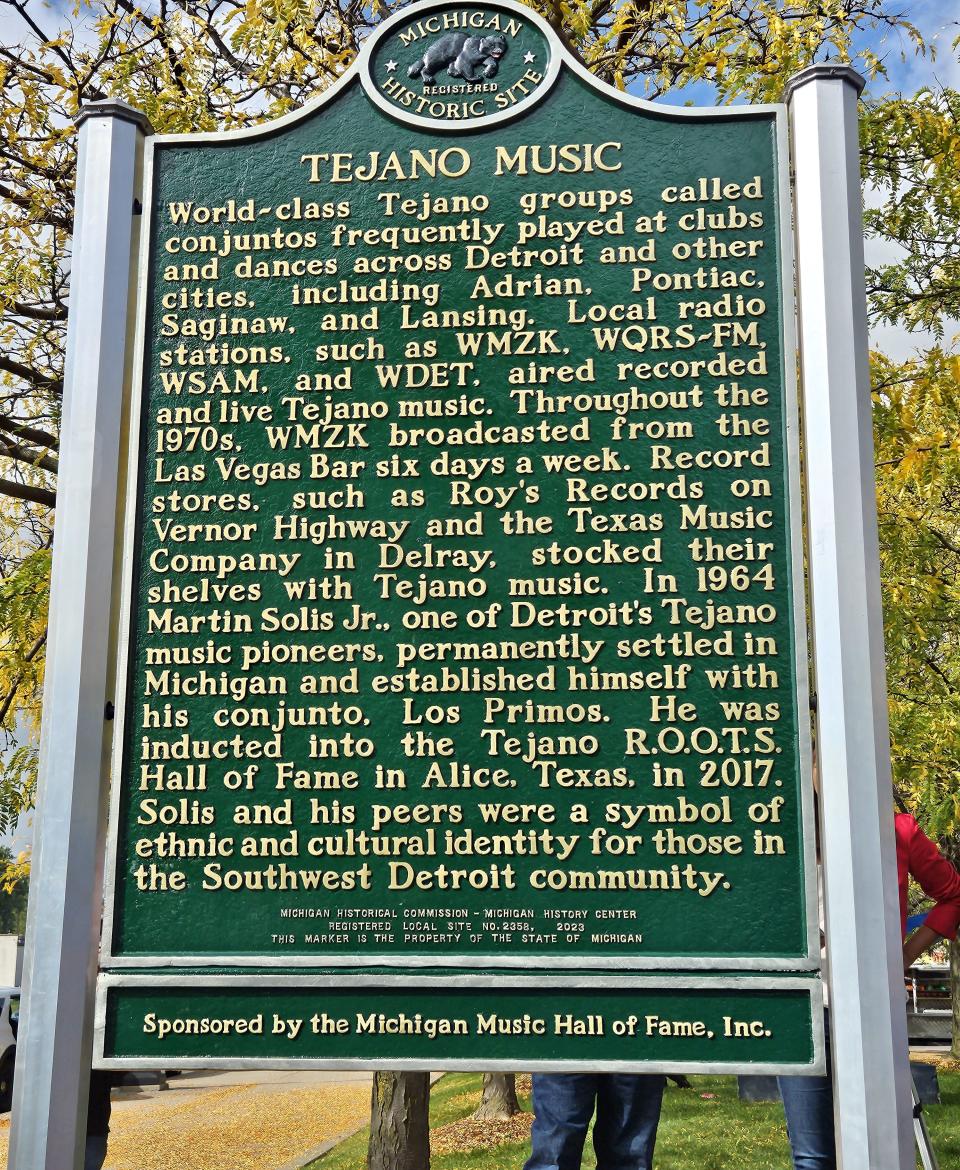
The arrival of Texas-Mexican musical styles in Michigan was a by-product of labor migration to the state, particularly in the 1940s and 1950s. Pockets of migrants in cities and towns across Michigan’s Lower Peninsula established musical cultures that largely escaped the attention of those outside the community and that continue to this day. In the decades since, Tejano has evolved, but it hasn't strayed too far from its musical roots.
Effort to honor Tejano musicians
The unveiling of the state marker and monument came together after years of planning, most of which was spearheaded by Melvindale native Frank Solis.
From the Detroit Free Press Big emotions, festive vibes as Detroit's Tejano legacy gets honored with historical marker
Solis is the son of the late Tejano music legend Martin Solis Jr., who died in August 2019 at the age of 90, one year after being inducted into the Tejano ROOTS Hall of Fame in Alice, Texas. His music lives on not just through the playing of previously recorded songs, but also through the efforts of his son and others in making sure his musical accomplishments are forever a part of history.
The state marker was to have been erected in the spring of 2022 but it was delayed until this fall when it was unveiled during Hispanic Heritage Month.
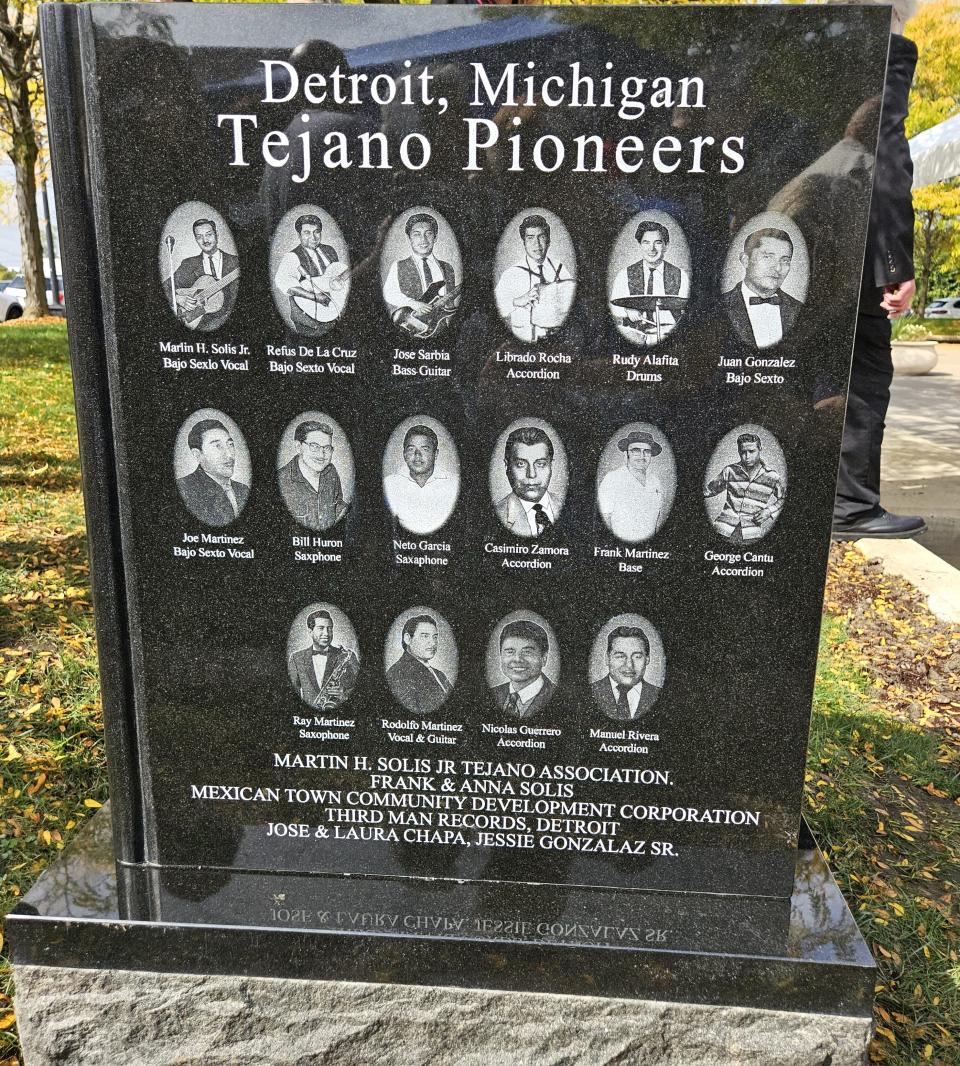
The marker is a joint project between the Martin H. Solis Jr. Tejano Association and the Michigan Music Hall of Fame, with support from Third Man Records, the Mexicantown Community Development Corp., the Hispanic/Latino Commission of Michigan, SCP Radio and the Julian Samora Research Institute at Michigan State University.
Even with the delays, Solis said he is grateful to see his father and many other Tejano, conjunto and orquestra musicians honored for their pioneering legacy.
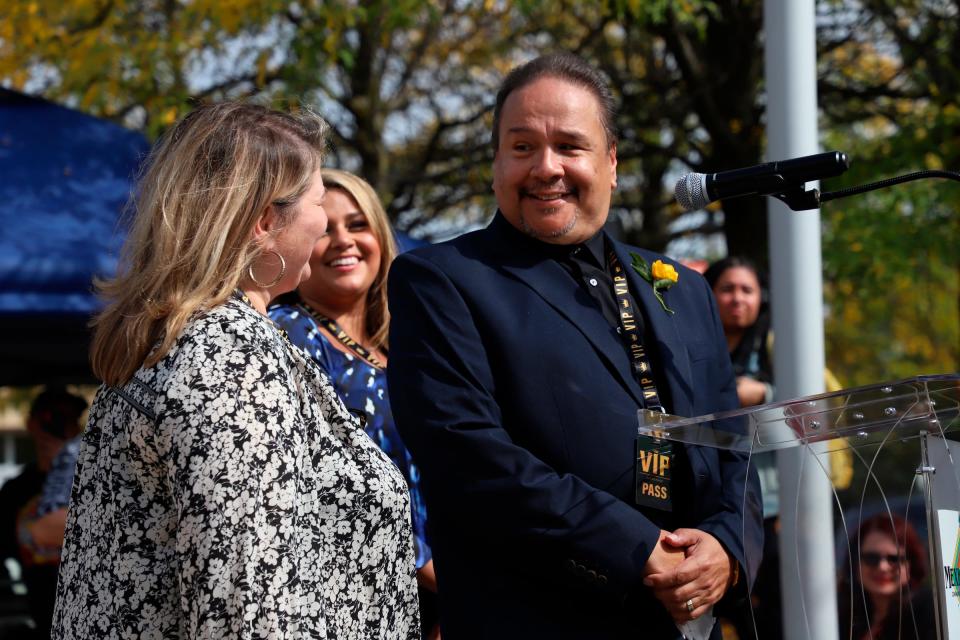
“After six years of dedicating much of my time to this marker, my wife (Anna) and I are very happy to see this happen,” he said. “(Anna) kept me on track, motivated and encouraged me.
“…My dad never dreamed that one day his name would be on a historical marker. He just loved to play music. It’s truly an honor for the state of Michigan to recognize and celebrate his legacy and the legacy of all of Michigan’s Tejano pioneers with this marker.”
What the Michigan historic marker says
Adrian is among the Michigan cities listed in the text of the Michigan historic marker at 21st and Bagley streets.
“World-class Tejano groups called conjuntos frequently played at clubs and dances across Detroit and other cities, including Adrian, Pontiac, Saginaw and Lansing,” the marker says.
Subscribe Now: For all the latest local developments, breaking news, and high school and college sports content.
Radio stations are recognized on the marker for airing recorded and live Tejano music as were record stores that “stocked their shelves with Tejano music.”
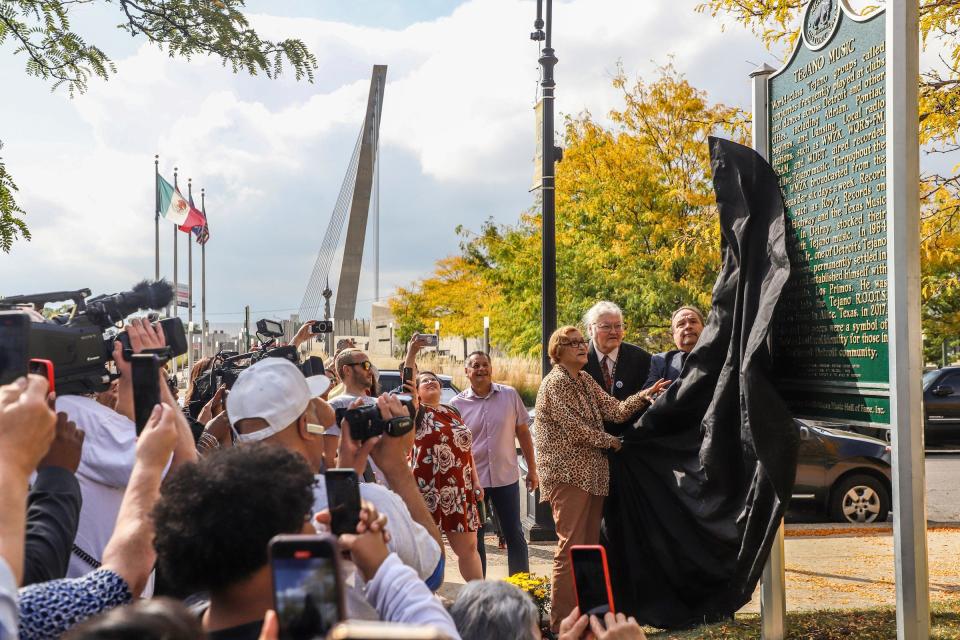
In 1964, the state marker says, Martin Solis Jr. settled in Michigan and established himself with his conjunto, Los Primos. The rest is history.
“Solis and his peers were a symbol of ethnic and cultural identity for those in the southwest Detroit community,” the marker says.
The Detroit Free Press contributed to this report.
This article originally appeared on The Daily Telegram: Adrian Tejano musicians honored with Michigan historic marker

